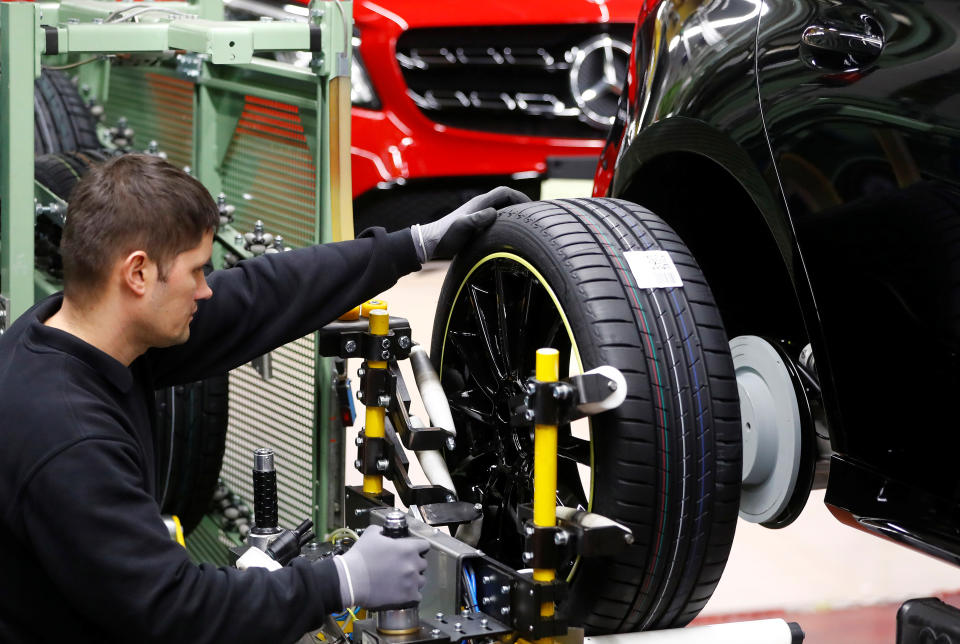Switch to electric cars 'could kill 400,000 jobs' in Germany

The move away from the production of cars with internal combustion engines to less complex electric vehicles will put hundreds of thousands of jobs at risk in Germany, according to a report seen by Handelsblatt newspaper.
A study by the National Platform for the Future of Mobility (NPM), due for presentation to the government this week, asserts that 410,000 jobs connected with the automotive industry could be lost by the end of this decade, some 88,000 of those in engine and transmission production alone. More than 800,000 people in Germany are employed either directly or indirectly in the automotive industry.
The NPM bases its estimate on job losses on the fact that electric cars contain fewer parts than ones with internal combustion engines —some 200 parts in an electric car versus around 1,200 in a petrol or diesel engine motor — and therefore need less workers both in production and supply chains.
The dramatic prediction was hotly disputed by the car industry body on Monday. "The assumption that up to 410,000 jobs could be lost in the coming years is based on an unrealistic extreme scenario," Kurt-Christian Scheel, managing director of German Automobile Association (VDA), told Handelsblatt.
The VDA said the report was basing its job-loss estimate on the assumption that domestic production of both batteries and electric cars will remain limited for 10 years, and that electric cars and batteries will still be largely imported from abroad. Scheel also said that German carmakers are expected to triple the number of electric models they produce to more than 150 by 2023.
Volkswagen (VOW.DE) has said it aims to have produced 1 million EVs by 2023, and hit 1.5 million by 2025. Tesla is also targeting production of half a million units per year in Germany, once its planned Gigafactory outside Berlin is running at full capacity.
While the jobs hit to one of Germany’s key industries is unlikely to be as dire as predicted by the NPM study, the pressure is on volume carmakers such as Volkswagen to start churning out electric cars, and on the government to ensure the country’s charging network is drastically improved to allow people to buy these vehicles without worry.
READ MORE: Tesla plans to produce 500,000 cars a year in Germany
Germany took the lead as western Europe’s top battery-electric car (BEV) market in 2019, overtaking Norway in terms of total BEV market share. Based on registrations from January to November last year, BEVs now account for 19.2% of the total German car market, and 18.9% of the Norwegian one.
“Although 2019 levels continue to appear large from a historical standpoint, the current view is that the market will more than double in 2020 compared with 2019 levels in order to meet key CO2 targets,” said automotive analyst Matthias Schmidt. “This is set to fuel the introduction of new models and increase production output that has essentially been in limp mode up until now.”

 Yahoo Finance
Yahoo Finance 